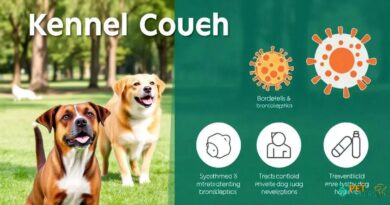What is: Young dog feeding guidelines
Understanding Young Dog Feeding Guidelines
Feeding a young dog is crucial for their growth and development. Young dogs, typically categorized as puppies up to one year old, require a balanced diet that supports their rapid growth and high energy levels. The right nutrition not only helps in physical development but also plays a significant role in their overall health and behavior.
Importance of Nutritional Balance
A well-balanced diet for young dogs should include the right proportions of proteins, fats, carbohydrates, vitamins, and minerals. Proteins are essential for muscle development, while fats provide energy and support healthy skin and coat. Carbohydrates are important for energy, and vitamins and minerals help in various bodily functions, including bone growth and immune system support.
Choosing the Right Dog Food
When selecting dog food for young dogs, it’s important to choose high-quality commercial puppy food that meets the standards set by the Association of American Feed Control Officials (AAFCO). Look for products labeled as “complete and balanced” for puppies. These foods are formulated to provide the necessary nutrients that young dogs need during their growth phase.
Feeding Frequency for Young Dogs
Young dogs typically require more frequent meals than adult dogs. It is generally recommended to feed puppies three to four times a day until they are about six months old. After this age, you can gradually transition to two meals a day. This feeding schedule helps maintain their energy levels and supports their metabolic needs.
Portion Control and Serving Sizes
Portion control is vital when feeding young dogs. Overfeeding can lead to obesity and related health issues, while underfeeding can hinder their growth. Always refer to the feeding guidelines on the dog food packaging, which usually provide recommendations based on the puppy’s weight and age. Adjust portions as your puppy grows and consult your veterinarian for personalized advice.
Hydration Needs for Young Dogs
In addition to a balanced diet, young dogs need access to fresh, clean water at all times. Proper hydration is essential for digestion, nutrient absorption, and overall health. Puppies are particularly active and can become dehydrated quickly, so ensure they drink enough water throughout the day, especially after meals and playtime.
Transitioning to Adult Dog Food
As your young dog approaches their first birthday, it’s time to consider transitioning to adult dog food. This transition should be gradual, taking about a week to ten days. Start by mixing a small amount of adult food with their puppy food, gradually increasing the proportion of adult food while decreasing the puppy food. This helps prevent digestive upset and allows your dog to adjust to the new diet.
Monitoring Your Young Dog’s Health
Regular veterinary check-ups are essential for monitoring your young dog’s health and nutritional needs. Your veterinarian can provide guidance on the best diet for your puppy based on their breed, size, and activity level. They can also help identify any potential health issues early on, ensuring your puppy grows into a healthy adult dog.
Common Feeding Mistakes to Avoid
Many pet owners make common mistakes when feeding their young dogs, such as feeding table scraps or choosing low-quality food. These practices can lead to nutritional deficiencies or obesity. It’s important to stick to a diet specifically formulated for puppies and avoid giving them human food, which may not meet their dietary needs.
Conclusion: The Path to a Healthy Young Dog
Following the young dog feeding guidelines is essential for ensuring your puppy grows up healthy and strong. By providing a balanced diet, proper feeding frequency, and regular veterinary care, you can help your young dog thrive and enjoy a long, happy life by your side.



